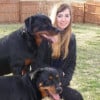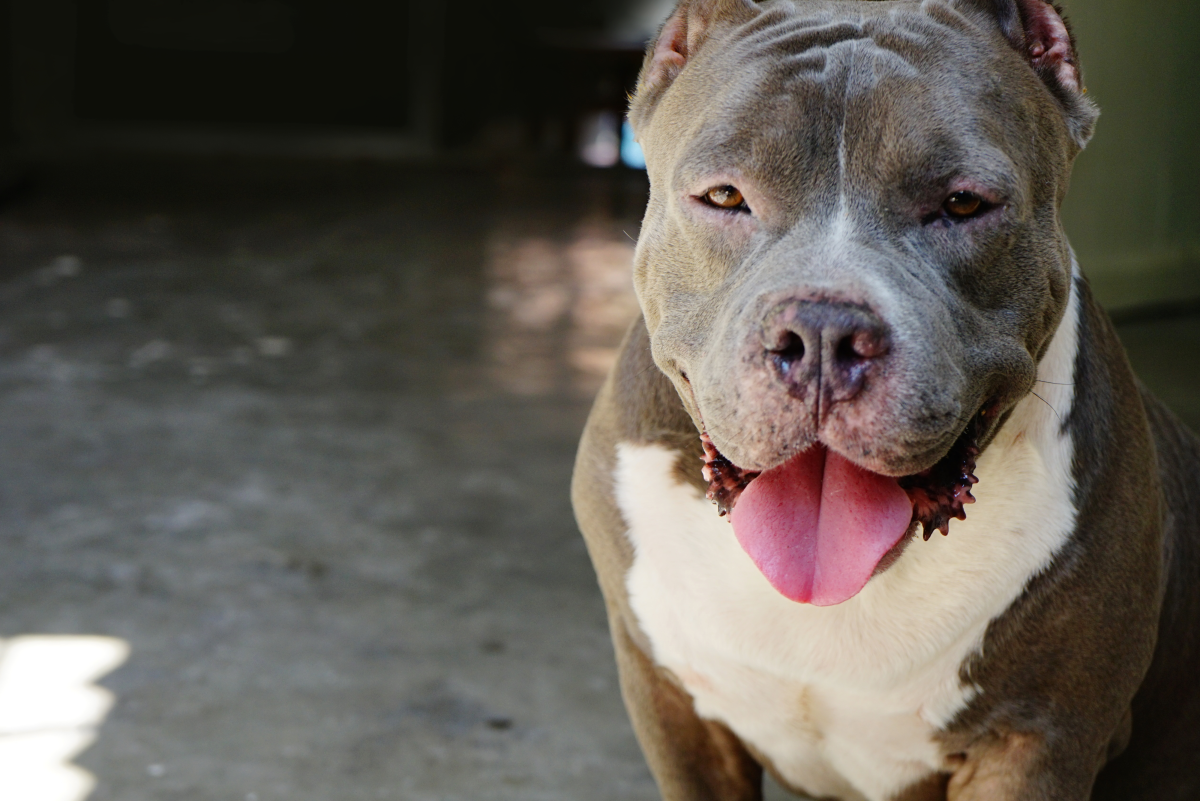Why are certain dog breeds sterotyped and black listed?
Innocent until proven guilty
When most of us think about dangerous breeds the first thing that comes to our mind is a vicious Pitbull Terrier or a Rottweiler along with many other sterotyped breeds such as Chow Chows or Doberman Pinchers.
We have all heard on air, read on the newspapers or seen scrolling on our television sets the headlines of dogs attacking and killing innocent children unprovoked.
The media is very effective in publicizing such news because it opens a fired debate and because of the nature of such news since it shocks us all when "man's best friend" becomes vicious to his fellow human beings
Truth is that, no dog is or can be considered 100% safe. Some breeds may appear to be more mellow than others but that does not mean that they cannot be capable of an aggressive act either being provoked or unprovoked. When I used to work at an animal hospital my staff and I were shocked to learn that a Golden Retriever had to be put down because it repeatedly attacked a child that was also part of the dog's family.
This may have been a rare incidence, however it appears that insurance companies believe that Retrievers must be a relatively safe breed since they do not appear on their policy blacklists.
Insurance companies should focus more on the dog's previous history of aggressiveness rather than aiming against particular breed. Their question should be "Has your dog had any history of biting or aggressive behavior whatsoever?" instead of "Do you own a Pittbull or a Rottweiler?"
I had to deal with this whole insurance policy ordeal first hand this past fall, when I moved and adopted two Rottweiler pups. Too many insurance companies had blacklisted and stereotyped them as being a large liability and turned me down.
After an extensive search one insurance company accepted my dogs but at a higher premium.
Much can be done by a responsible owner to lessen the chances for your dog to become the next statistic of aggressive behavior. This applies to all either if you own a placid poodle or a Presa Canaria.
It appears that obedience classes along with proper socialization can help dogs become more people oriented. Early socialization appears to play a major role in the dog's future development of personality. Studies have demonstrated that a puppy ideally should be exposed to the most people as possible by when he/she is 12 weeks old. Beyond 12 weeks this critical period expires and the dog has less chances of being properly socialized.
When walking a dog a responsible owner will keep him/her leashed at all times. Running at large should not ever be allowed. If confined to a yard there should be a fence and the owner must assure that there are no escape routs. Most incidents have happened when a dog was running at large or escaping from an opened gate or a hole in a fence.
Guard dogs need careful supervision. A guard dog cannot distinguish a burglar from a child waiting at a bus stop and it will do what it was taught to do: attack. You may think a guard dog knows its boundaries to defend but in most cases even the road closest to your house is an area he believes he must defend.
If we think of it we can compare the issue of condemning particular dog breeds as condemning people of a specific race/age/ sex or economical status for committing crime.
Even though statistics may show that people of particular race, age, sex, or economical status may be more prone to commit crime it would be discriminatory to ban them from our society.
In the above comparison the nature versus nurture theory arises as an open debate. The cause of aggressiveness has been studied at length both in humans and in the animal kingdom. But yet, the results remain questionable. Some theorize that aggressive behavior is linked to how an animal has been trained while other relate it all to the theory of genetics.
While waiting the true findings rather than accusing certain breeds it would be wiser to allow them the gift of doubt; just as in humans, they should have the chance to be claimed "innocent until proved guilty"...









